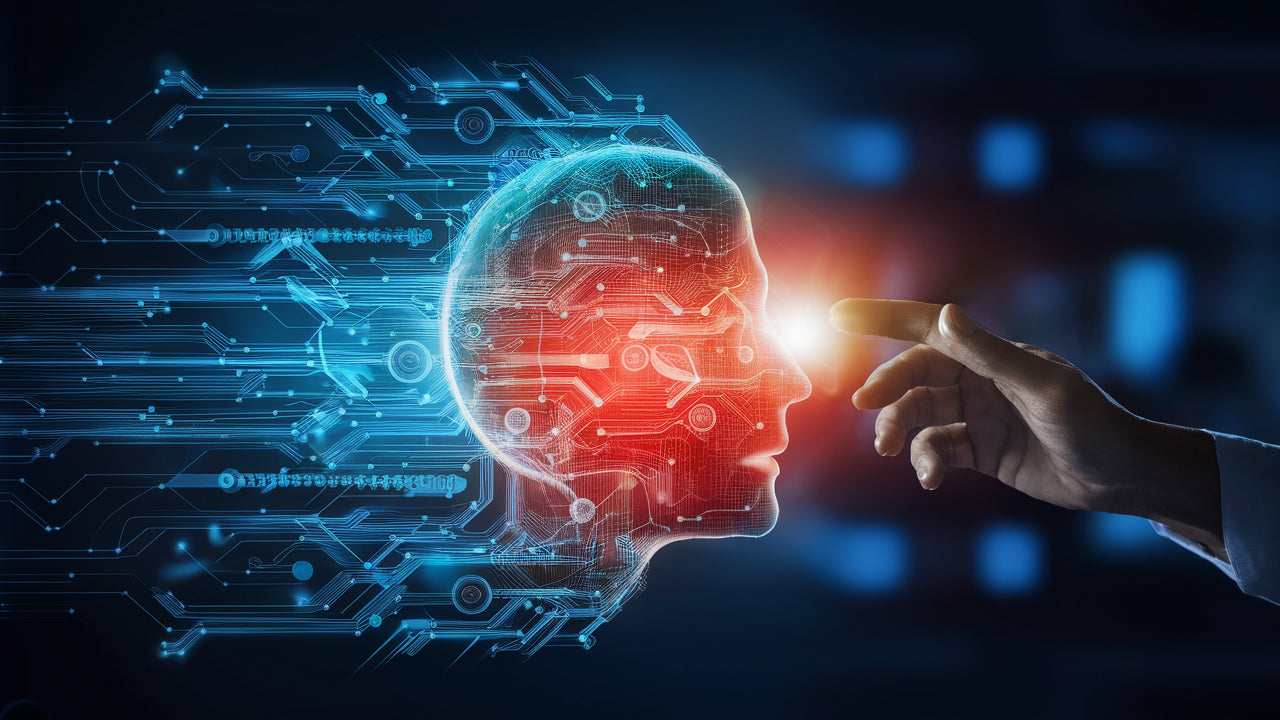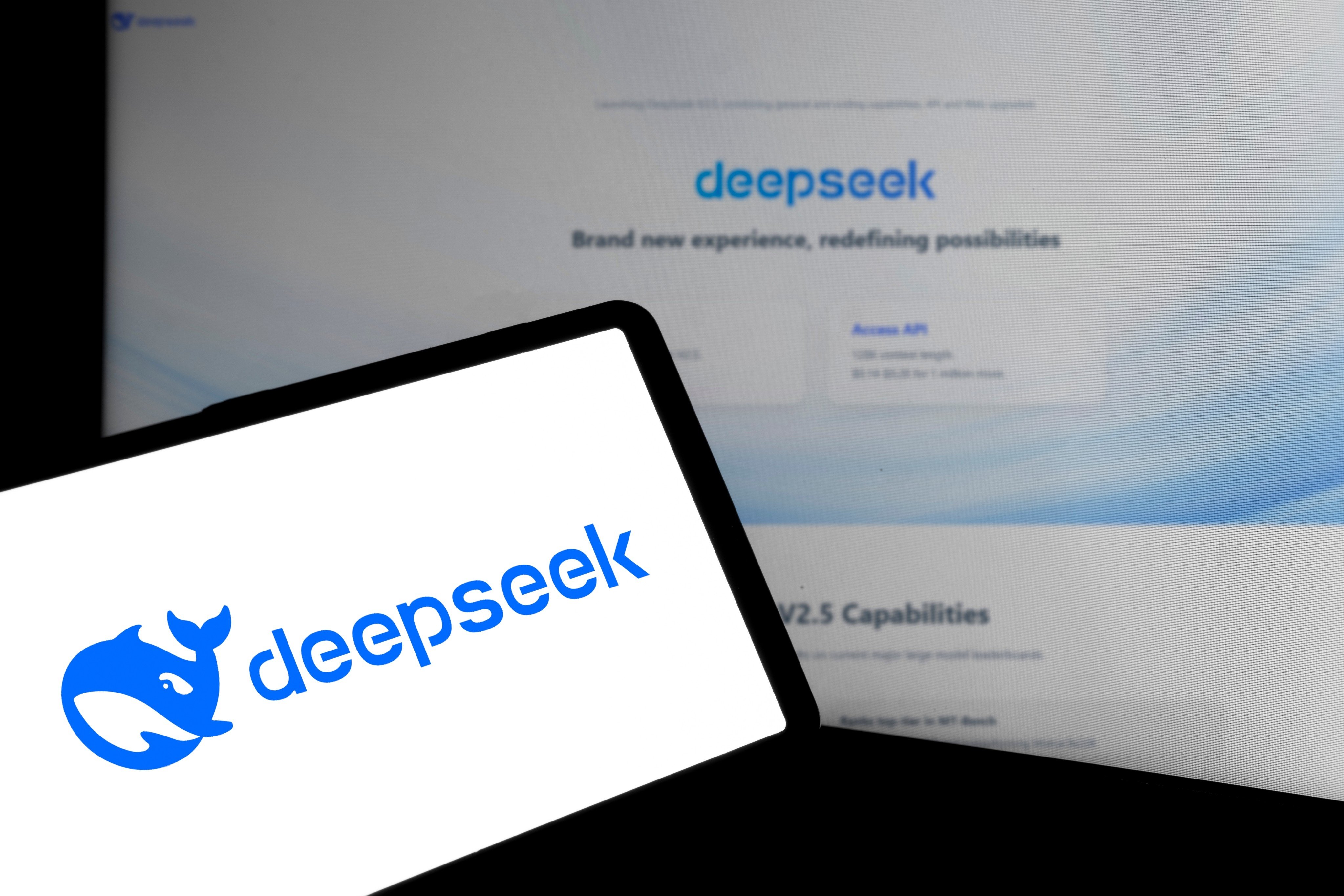
We might generate income when you click links to our partners. Discover more.

What is synthetic general intelligence (AGI), and why does it matter? As one of the most talked-about topics in technology today, it has sparked a race amongst leading business like OpenAI and Google to turn this cutting-edge principle into truth. Understanding AGI is necessary because it has the prospective to revamp industries, affect our society in extensive ways, and change the method we engage with innovation. Here's what you need to understand about what it might be able to do, how it may change industries and fields, and the substantial challenges facing its advancement.

KEY TAKEAWAYS
• AGI varies from traditional AI in key methods that it would have the ability to believe, find out on its own, and adjust to brand-new difficulties like humans unlike traditional AI, which is created for specialized tasks and runs within a minimal scope. It requires human beings to update and fine-tune capabilities. (Jump to Section).
• Once it comes true, AGI would be able to make exceptional advances in numerous fields, consisting of healthcare, research, and financing sectors. (Jump to Section).
• Creating AGI is challenging due to the research study challenges that include technical, ethical, and social issues. Addressing these challenges is main to maintaining the safe and favorable development of this technology. (Jump to Section)
Featured Partners: Artificial Intelligence Software
Learn More
TABLE OF CONTENTS
What is Artificial General Intelligence (AGI): A Clear Definition.
Understanding AGI vs Traditional AI.
Potential Applications of Artificial General Intelligence.
Challenges in Artificial General Intelligence Research.
3 Introductory AGI Courses to Consider.
Frequently Asked Questions (FAQs).
Bottom Line: Why Knowing What Is Artificial General Intelligence Matters.
What is Artificial General Intelligence (AGI): A Clear Definition
Artificial general intelligence, or AGI, refers to a kind of synthetic intelligence (AI) that can analyze, learn, and perform any cognitive job that a human can do. Unlike today's AI, engel-und-waisen.de which is developed to deal with particular tasks like recommending items or processing information, AGI would have the ability to adapt to brand-new obstacles and use understanding throughout various fields. To put it simply, this sophisticated type of AI would believe and reason like a human. While AGI holds fantastic possible, it's worth keeping in mind that it is still a concept today, without any totally developed systems available yet.
Key Capabilities of Artificial General Intelligence
AGI would have a variety of capabilities that imitate human intellectual functions, so it can carry out jobs beyond the narrow focus of the existing AI tools in the market. Some essential abilities consist of the following:
Human-Like Reasoning: The innovation would have the ability to understand and make choices the method human beings do. It would believe seriously, solve problems, and develop services based on its own experiences and past interactions, similar to how we apply past understanding to brand-new scenarios.
Solving Unfamiliar Problems: One of AGI's strengths is its prospective to deal with brand-new issues. Unlike standard AI, which is trained to carry out specific tasks, AGI would have the capacity to handle issues it hasn't been straight trained to resolve. It might figure out how to approach an entirely brand-new challenge, much like human beings do when confronted with something we have actually never experienced before.
Self-Learning and Adapting: AGI might fine-tune its abilities and find out from experience, without the need to be by hand upgraded every time. It would observe and examine data, learn from mistakes, wiki.whenparked.com and discover much better methods to complete jobs over time. This indicates AGI might adapt to brand-new situations and improve at jobs by itself.
Using Knowledge Across Different Areas: AGI would have the ability to take what it learns in one location and akropolistravel.com use it to other tasks. For instance, if it found out how to solve math problems, it might utilize that knowledge to attend to obstacles in other fields, like science or service. The ability to transfer abilities throughout different areas is something people do naturally and would make the technology versatile in varied sectors.
Understanding and Reacting To Emotions: Recognizing and reacting to human emotions would also be within AGI's abilities. This would be very important in settings where understanding people's sensations matters, such as health care, customer care, or social situations. By reacting to emotions properly, AGI would be much better geared up to work with human beings in a reliable method.
Understanding AGI vs Traditional AI
The table listed below provides a photo of the significant distinctions in between AI and traditional or wikitravel.org narrow AI by underscoring their abilities, flexibility, prawattasao.awardspace.info and current status.
AGI would have the ability to think, learn autonomously, and adjust to new challenges like people. However, it is still theoretical and has actually not been understood yet. On the other hand, conventional AI is developed for specific tasks and runs within a fixed scope. It can not get used to brand-new jobs without human input.
For example, an AGI might discover to identify medical conditions, then utilize that understanding to develop tailored treatment plans-and even change its technique based on the client's progress. Additionally, it could apply this problem-solving capability to tasks in completely different fields, such as creating organization methods or recommending on environmental preservation. In contrast, conventional AI, like a diagnostic tool, can just examine medical data for particular conditions. It can not adapt to other locations or improve on its own.
Potential Applications of Artificial General Intelligence
While AGI isn't here yet, its possible applications cover many fields and hold great promise of extreme improvements in lots of sectors. Without being restricted to particular tasks like narrow AI, AGI would be highly versatile and might use its abilities to solve multi-disciplinary issues. It might get rid of obstacles presently beyond the capabilities of existing AI applications.
Transforming Healthcare
AGI would change the video game in health care by diagnosing complex and unusual diseases with higher precision, even in cases where signs are ambiguous or overlap with numerous conditions. It could produce highly customized treatment strategies by studying client history, hereditary details, and real-time health information. In addition, AGI could speed up drug discovery, recognizing possible treatments in weeks rather than years by processing massive datasets and running predictive simulations.
Advancing Scientific Research
In clinical research, AGI would have the ability to simulate experiments, evaluate intricate datasets, and generate hypotheses. It might accelerate breakthroughs in quantum physics, genomics, and climate science. By incorporating understanding from various domains, the innovation might discover connections and services that might otherwise go undetected by traditional AI.
Improving Industry
Organizations in the commercial field could utilize AGI to increase performance in real-time by handling entire supply chains. It would forecast and resolve disruptions before they happen. In production, it might supervise autonomous factories, optimizing production processes while maintaining security and quality standards. Its ability to adjust to changing situations would make it a vital tool in industrial environments.
Enhancing Business Strategy
AGI might enhance service decision-making by assessing market trends, customer habits, and functional information to find chances and threats. In contrast to narrow AI systems, AGI would innovate services to challenging service issues, such as dealing with financial uncertainty or forecasting long-lasting market shifts. Its capability to learn from diverse sources would empower businesses to remain competitive.
Redefining Finance
In the monetary sector, AGI might increase forecasting precision by spotting patterns in large amounts of financial data, so financiers and institutions can make informed decisions. It would likewise have the ability to find fraud in real-time by recognizing subtle abnormalities that conventional AI systems might miss. Additionally, AGI might construct more robust financial models, considering complex variables and scenarios to reduce threats.
Challenges in Artificial General Intelligence Research
Developing AGI is among the most enthusiastic objectives in innovation, however it comes with numerous difficulties. These difficulties include technical, ethical, and social areas, making AGI development a complex and multi-faceted process. Overcoming the following difficulties amounts ensuring safety, supporting ethical requirements, and carefully planning how AGI's intro and usage will affect individuals, industries, and society as a whole:
Making AGI Truly Flexible: AGI would need to manage a vast array of problems and adjust to new circumstances, much like human beings. Building a system of flexibility is exceptionally tough because current AI tools are not developed to think or discover at this level of elegance.
Massive Computing Needs: To reproduce human intelligence, AGI would need enormous amounts of calculating power to procedure information from diverse sources rapidly. Determining how to make such systems powerful and efficient enough for real-world usage is a considerable difficulty.
Understanding Human Intelligence: We don't completely comprehend how human believing works, specifically complicated elements like intuition or awareness. Without this understanding, it's challenging to construct makers that can emulate human-like thinking.
Making AGI Safe and Ethical: AGI might potentially be misused, like to develop biased systems or damaging tools like self-governing weapons. Researchers must make sure that AG is constructed properly and follows strict ethical guidelines. This is a tricky job that necessitates global collaboration.
Keeping It Under Control: There's a threat AGI could act in methods we don't expect, specifically because it would have the capability to find out and alter with time. Ensuring that these systems stay lined up with human values and are safe to use is among the most significant difficulties in AGI research study.
Effect on Jobs and Society: If AGI becomes a reality, it could replace jobs or trigger economic inequality by benefitting some groups more than others. Getting ready for these social impacts is simply as essential as constructing the innovation itself.
High Costs and Resources: Researching AGI requires a lot of money, time, and expert knowledge. Not all companies have these resources, decreasing progress and leaving smaller sized organizations out of the race.
3 Introductory AGI Courses to Consider
Familiarizing yourself with AGI can give you an one-upmanship, whether you want to advance your career in AI or merely desire to remain informed about emerging innovations. The following introductory courses can help you acquire a deeper understanding of what synthetic general intelligence is, so you can solidify your understanding about this appealing AI improvement.
Artificial General Intelligence (AGI): An Initial Course on Udemy
This Udemy course supplies an essential understanding of AGI, appropriate for newbies without any previous experience. The course covers appropriate subjects, including the foundations of AI, the essentials of AGI, and the latest trends in the field. It also checks out the advantages, threats, and difficulties associated with AGI, equipping you with insights into what the sophisticated technology can attain. The entire course consists of 15 lectures and can be finished in around 45 minutes. Upon completion, you will receive a certificate to boost your qualifications in the task market. This initial course expenses $24.99.
Intro to Artificial General Intelligence (AGI): Future of AI on Udemy
Udemy's initial course provides a detailed overview of AGI for students with no technical background. It discusses the historical context and foundation of AGI, the differences in between narrow AI and AGI, and ethical considerations surrounding its development. In addition, it addresses future patterns in AI and AGI, shedding light on the challenges and chances that lie ahead. Spanning one hour and 46 minutes, the course consists of 39 lectures, on-demand video, wiki.fablabbcn.org and downloadable resources. It also has a practical test at the end to reinforce your understanding. You will be granted a certificate when you finish the course. It is offered as part of Udemy's premium strategies, beginning at $20 per month, or as a different purchase of $49.99.
Artificial General Intelligence (AGI) on Udemy
This Udemy course brings a clear and concise intro to the topic, with on-demand videos and 22 lectures. It elaborates on major AGI ideas and the role of robotics in AGI advancement. It likewise examines the ethical, software application, and hardware challenges in creating AGI. The course provides quizzes to check your knowledge and a certificate of conclusion. Priced at $44.99, it is made for students at any level, making it accessible and important for anyone who wishes to find out more about AGI.
Frequently Asked Questions (FAQs)
Achieving AGI might change markets, enhance decision-making, and result in significant advancements in innovation. However, it likewise raises issues about ethics, job displacement, and the need for appropriate policy to make certain it is established securely and properly.
Experts disagree on how far we are from achieving AGI. Sam Altlman of OpenAI believes in 2025, AI agents might join the labor force, eventually paving the way to AGI development. On the other hand, a survey of AI researchers puts the median estimate around 2047. Despite rapid AI advancements, existing systems are still limited to narrow tasks and do not have the broad, versatile thinking of humans-so AGI is most likely still years away.
The idea of AGI totally replacing humans is still debated. Even though it's likely that AGI will help us by taking over repeated jobs, there is a possibility that it could displace certain tasks. That said, rather than totally replacing human beings, AGI is anticipated to work together with us, dealing with technical responsibilities while we concentrate on tasks that require creativity and compassion. At the end of the day, the results of AGI will depend on how society selects to handle and incorporate it.

Bottom Line: Why Knowing What Is Artificial General Intelligence Matters
Understanding artificial general intelligence is imperative since this technology could alter industries, solve tough problems, and transform how we use AI. But as we begin to develop AGI, we need to thoroughly resolve several difficulties, consisting of technical problems, ethical issues, and its total effect on society. By finding out about AGI's potential and dangers, we can pursue making sure it is developed properly and used in manner ins which would benefit everyone.








